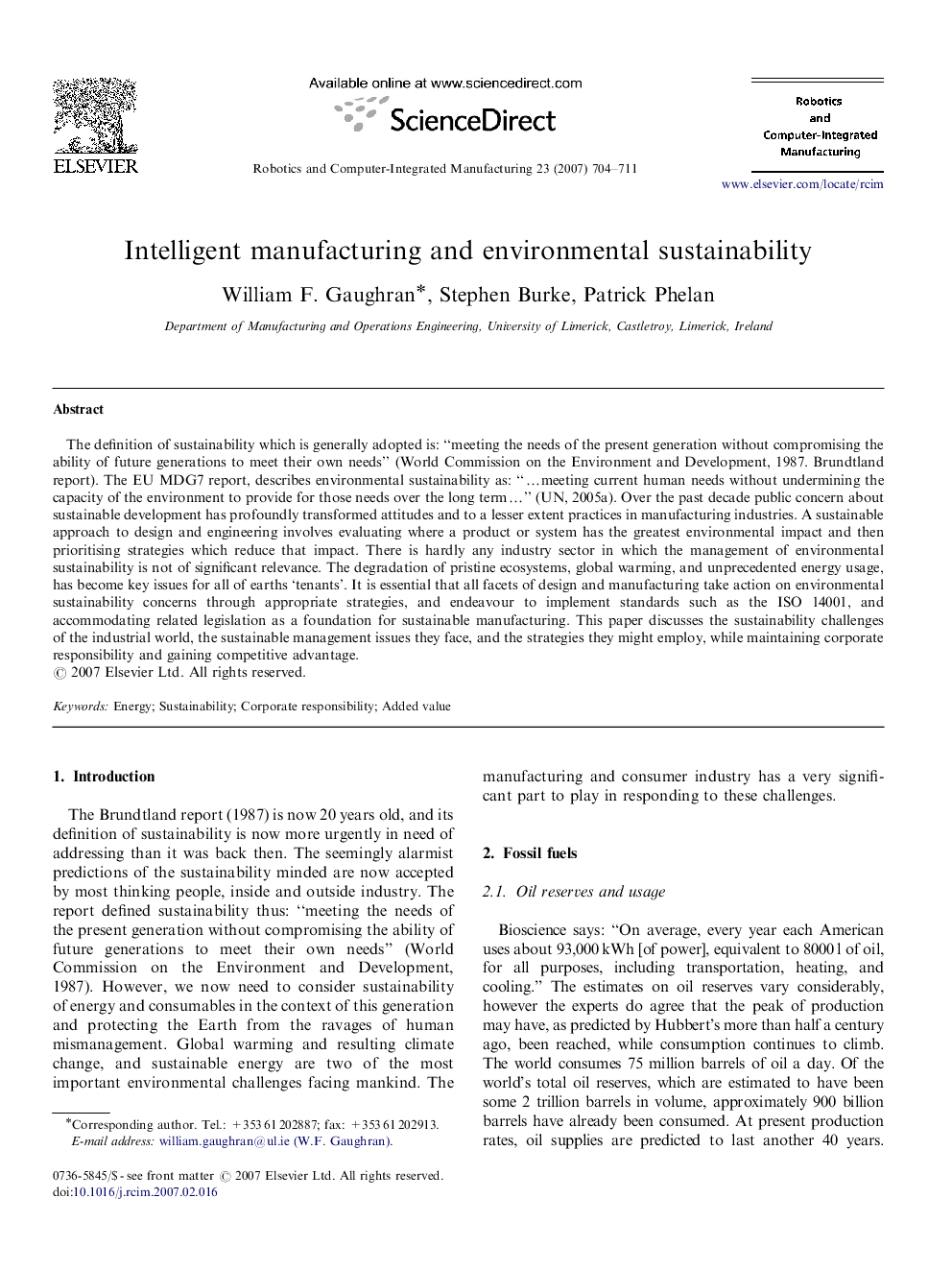| Article ID | Journal | Published Year | Pages | File Type |
|---|---|---|---|---|
| 413876 | Robotics and Computer-Integrated Manufacturing | 2007 | 8 Pages |
The definition of sustainability which is generally adopted is: “meeting the needs of the present generation without compromising the ability of future generations to meet their own needs” (World Commission on the Environment and Development, 1987. Brundtland report). The EU MDG7 report, describes environmental sustainability as: “…meeting current human needs without undermining the capacity of the environment to provide for those needs over the long term…” (UN, 2005a). Over the past decade public concern about sustainable development has profoundly transformed attitudes and to a lesser extent practices in manufacturing industries. A sustainable approach to design and engineering involves evaluating where a product or system has the greatest environmental impact and then prioritising strategies which reduce that impact. There is hardly any industry sector in which the management of environmental sustainability is not of significant relevance. The degradation of pristine ecosystems, global warming, and unprecedented energy usage, has become key issues for all of earths ‘tenants’. It is essential that all facets of design and manufacturing take action on environmental sustainability concerns through appropriate strategies, and endeavour to implement standards such as the ISO 14001, and accommodating related legislation as a foundation for sustainable manufacturing. This paper discusses the sustainability challenges of the industrial world, the sustainable management issues they face, and the strategies they might employ, while maintaining corporate responsibility and gaining competitive advantage.
